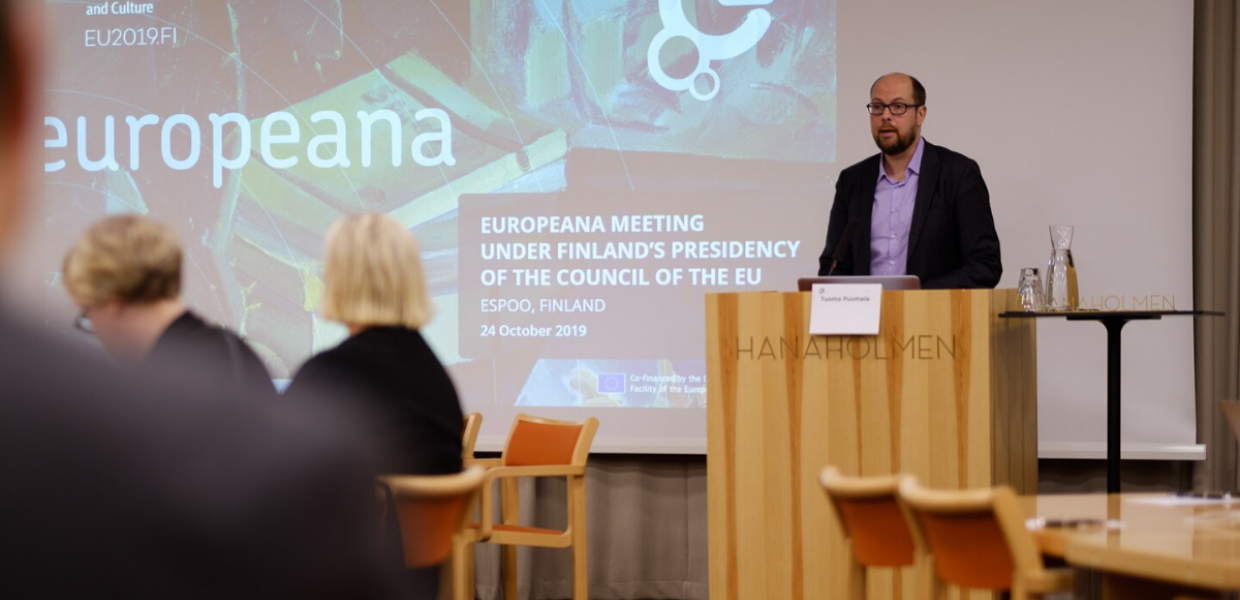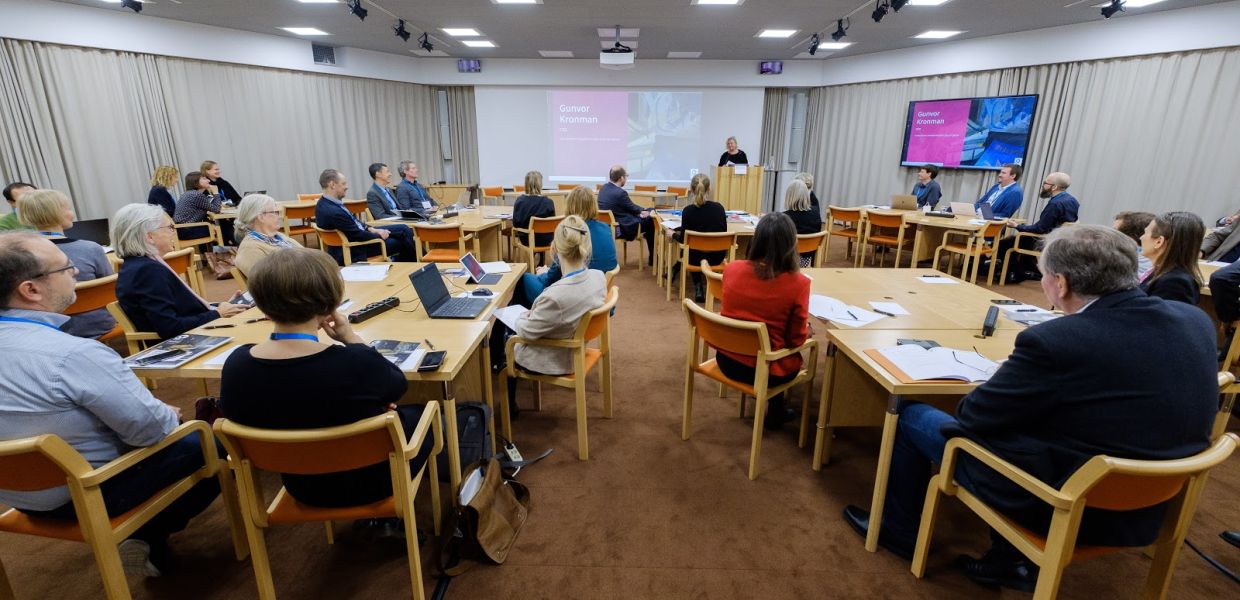What did we talk about?
The event was a mixture of speeches, case study presentations, workshop sessions and a panel discussion. Finland’s Ministry of Culture and Education State Secretary Tuomo Puumala emphasised the role of culture and heritage in creating a democratic and inclusive Europe. Keynote speaker, Anne Bajart, Deputy Head of Unit at the Directorate-General for Communications Networks, Content and Technology at the European Commission made a call to cultural heritage institutions and Europeana content providers to ‘help and support the development of the eTranslation project by providing the curated translations they have’. Other speakers then covered a broad range of topics, including multilingual policy, user experience design, learnings from automatic translation projects, multilingual metadata, linked vocabularies, automatic subject indexing services, and measuring success.
Working in groups, participants were then invited to share their experiences of opportunities and challenges related to multilingualism. They identified benefits of multilingualism and discussed what solutions or changes are needed to address the challenges.
Benefits of multilingualism
During the speeches and workshop exercises, the following benefits of multilingualism emerged:
Access to more sources of information, and to the knowledge and history of other cultures and less common language groups
Promotion of socially inclusive societies and mutual understanding of diverse cultures
Increased usability of digital cultural heritage in education and research
Outreach to more diverse audiences, attraction of more visitors and increased exposure of collections
Contribution to a stronger European identity.
Challenges facing the advancement of multilingualism
To realise the identified opportunities, a number of challenges need to be addressed. The issues the sector faces in relation to multilingualism were identified as follows:
Lack of understanding of the benefits of multilingual digital cultural heritage and the opportunities it brings to the sector and to society, causing a lack of unified multilingual/translation policy
Lack of awareness and failure to share, disseminate and promote competences and knowledge in the sector, leading to a shortage of expert resources and training
Lack of tools, technologies and digital resources that are readily adapted to digital cultural heritage and able to tackle the intricate nature and constant evolution of linguistic concepts related to our domain
Lack of critical mass for applying machine learning to less common languages
Wider issues in cultural heritage that also have an impact on handling multilingual issues: lack of quality (translations of) metadata/content, lack of interoperability/ standardisation, institutions not aware of or not making use of existing tools, lack of R&D in future technologies e.g. AI.
Potential solutions to advance multilingualism
It became clear that addressing these issues is a shared responsibility of the Member States’ ministries of culture and cultural heritage institutions, aggregators and data providers, Europeana and the European Commission. Digital innovation hubs, the Europeana Network Association and the Europeana Aggregators’ Forum, the EuropeanaTech Community, domain representatives, associations, ontology providers, developers and the DCHE, can all positively contribute to such advancement.
Solutions and actions identified include:
Co-operation at European, national and local level among all parties involved, including content providers and collection managers
Making more funding available to institutions for investment in the improvement of multilingualism
Providing standards/frameworks for multilingual data cataloguing practices, crowdsourcing, curated translation, and mass translation for the cultural domain
Supporting the development of more expertise in the sector
Raising awareness and facilitating the transfer of existing tools, standards and frameworks, and R&D by Europeana and/or the language technology industry
Raising awareness about the benefits of good quality content and metadata
Improved ingestion of metadata from aggregators to Europeana, supported by relevant services such as automated data cleansing tools
What’s next?
As part of the next steps to progress multilingual reach in Europeana and in the sector at large, Europeana is developing a recommended multilingual strategy and roadmap paper that builds on the output from the workshop and the expert presentations at this event.
For more information on the event, read the presentations and see the images and the video from the meeting. Look out for updates on the meeting's outcomes on Europeana Pro.





